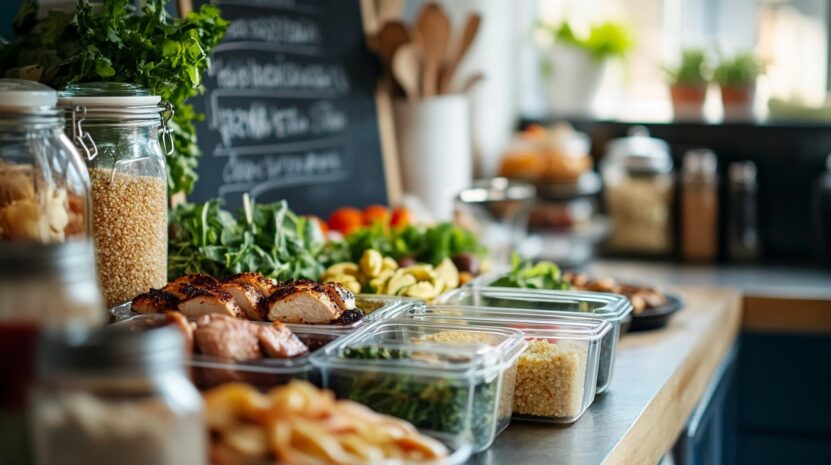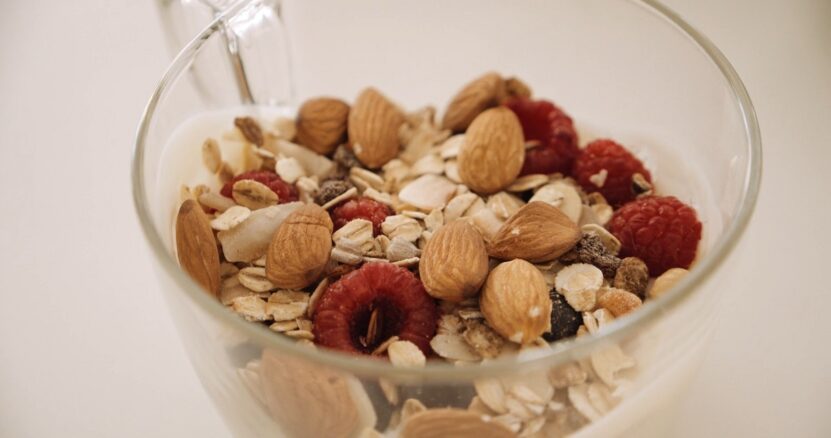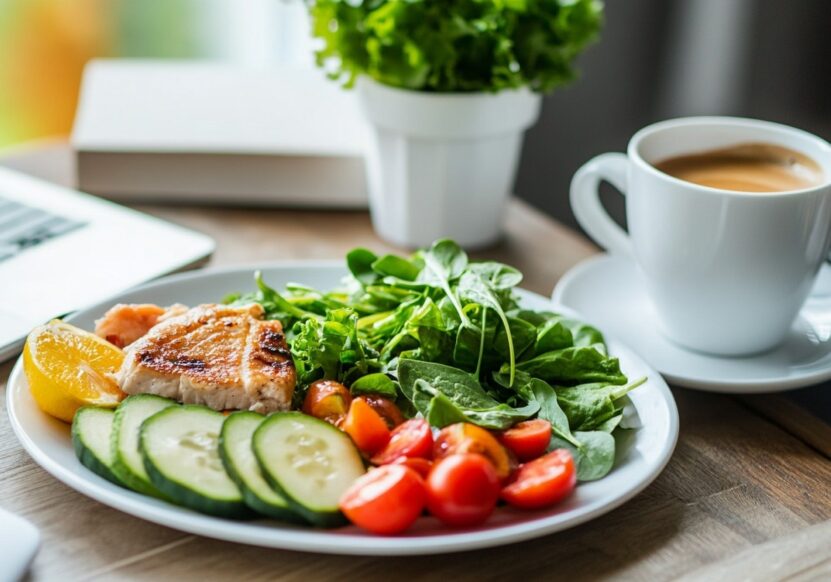Life moves at full speed. Between work deadlines, social obligations, family responsibilities, and the unexpected chaos that seems to pop up daily, eating healthy can feel like an impossible task.
I’ve been there, grabbing whatever is quick, easy, and, unfortunately, not always the healthiest. Fast food, sugary snacks, and energy drinks become go-to options when time is tight.
But I realized something: fueling my body properly gives me more energy, helps me stay productive, and even improves my mood. So, despite the whirlwind of life, I started finding ways to eat well without spending hours in the kitchen or obsessing over every calorie. And you can do it too. Apart from that, being more active is also important. There are ways to train more frequently even if you have a busy schedule, and that is with calisthenics.
A balanced diet doesn’t have to be overwhelming, expensive, or time-consuming. It just takes a few smart strategies, some planning, and a little flexibility. Let’s get into it.
Why Eating Well Matters

When schedules are packed, food becomes an afterthought. Meals get skipped, snacks replace proper nutrition, and caffeine fuels the day. It might work for a little while, but eventually, energy levels crash, focus disappears, and overall health takes a hit.
A well-balanced diet:
- Provides steady energy throughout the day
- Helps with mental clarity and focus
- Reduces the likelihood of burnout and fatigue
- Keeps the immune system strong
- Supports better sleep and overall well-being
The good news? It doesn’t take a complete life overhaul to see the benefits. Small, consistent changes make all the difference.
Small Changes That Make a Big Difference
Trying to change everything overnight is a guaranteed way to fail. Instead, easing into healthier habits gradually makes it easier to stick with them.
Start with Simple Swaps:

- Ditch sugary drinks – Water, herbal teas, or sparkling water keep hydration up without added sugar.
- Choose whole grains – Brown rice, whole-wheat pasta, and quinoa provide longer-lasting energy than refined carbs.
- Prioritize protein – Helps keep you full and maintains muscle, even during busy days.
- Healthy fats matter – Avocados, nuts, seeds, and olive oil offer essential nutrients.
- Sneak in veggies – Add spinach to smoothies, toss extra greens into meals, or snack on carrots and hummus.
Tiny improvements add up over time, creating sustainable change without feeling overwhelming.
Meal Prepping
Cooking every day? Not realistic. That’s where meal prepping saves time, money, and stress. A little planning means fewer last-minute food decisions that lead to grabbing fast food or skipping meals entirely.
For those who struggle with meal planning, services like Only Meal can be a game-changer, offering pre-portioned, nutritious meal options that eliminate the hassle of deciding what to eat.
How to Make Meal Prepping Work for You:

- Pick a Prep Day – Sundays or mid-week days work well, but any time that fits your schedule is perfect.
- Batch Cook Staples – Grill chicken, roast veggies, cook a pot of quinoa—keep things versatile.
- Portion Meals in Advance – Having pre-packed meals makes it easy to grab and go.
- Use Quick, Healthy Recipes – Not every meal has to be fancy simplicity is key.
- Invest in Good Containers , Leak-proof, reusable containers keep meals fresh and easy to transport.
Even prepping just one or two meals per week makes a massive difference when time is tight.
Smart Snacking to Keep Energy Levels High
Let’s be honest: when hunger strikes in the middle of a busy day, it’s tempting to grab the quickest thing available. Unfortunately, that often means a candy bar, chips, or something that spikes blood sugar and leads to an energy crash.
Having nutrient-dense snacks on hand keeps hunger in check and supports steady energy.
Easy Grab-and-Go Snack Ideas:

- Nuts and seeds – High in healthy fats and protein, perfect for lasting energy.
- Greek yogurt with fruit – Provides protein and probiotics for gut health.
- Hummus and veggies – A crunchy, satisfying option packed with fiber.
- Hard-boiled eggs – A protein powerhouse, easy to prepare ahead of time.
- Dark chocolate and almonds – Satisfies sweet cravings while still being nutritious.
Keeping snacks easily accessible at work, in the car, or in a bag—prevents impulse junk food purchases.
Eating Out Without Sabotaging Your Health
Sometimes, eating at home isn’t an option. Whether it’s a business lunch, social gathering, or pure exhaustion, restaurant meals will happen. The key is making mindful choices instead of just defaulting to unhealthy options.
Tips for Making Better Choices at Restaurants:
- Check the menu beforehand – Knowing what’s available helps with planning.
- Opt for grilled over fried – Grilled chicken, fish, or veggies are better choices than deep-fried alternatives.
- Ask for dressings on the side – Salad dressings and sauces can be calorie-heavy. Controlling portions helps.
- Watch portion sizes – Many restaurant meals are double (or triple) the size of a normal serving. Boxing up half for later is a smart move.
- Balance the meal – Pair proteins with fiber-rich veggies instead of just carbs.
Eating out doesn’t have to mean derailing progress. Small adjustments help keep things balanced.
Hydration
Drinking enough water is often ignored, yet it plays a massive role in energy, focus, and appetite control. Many times, when hunger kicks in, it’s actually dehydration.
Simple Ways to Drink More Water:
- Keep a reusable water bottle nearby at all times.
- Flavor it with lemon, mint, or cucumber for variety.
- Set hourly reminders if remembering is tough.
- Start the day with a big glass of water before coffee or tea.
Hydration keeps cravings in check, improves digestion, and supports overall well-being.
Sleep and Stress
Healthy eating isn’t just about food and sleep and stress impact cravings, energy, and overall decision-making.
Lack of sleep increases cravings for sugar and processed foods. Stress makes reaching for comfort foods almost automatic. Managing both improves eating habits naturally.
Ways to Improve Sleep and Reduce Stress:

- Stick to a sleep schedule – Consistency helps with better rest.
- Cut back on screens before bed – Blue light interferes with melatonin production.
- Practice deep breathing or meditation – Helps manage stress effectively.
- Move daily – Even a short walk reduces stress and supports better sleep.
- Balance blood sugar – Eating protein and fiber-rich foods prevents energy crashes.
Taking care of mental and physical health makes it much easier to stay consistent with food choices.
Give Yourself Grace
Let’s be real, no one eats perfectly all the time. Some days, life gets hectic, and fast food happens. Other days, dessert feels necessary. And that’s okay.
The goal isn’t perfection; it’s balance. One less-than-ideal meal doesn’t erase progress. The key is making the best choices possible when you can and moving forward when things don’t go as planned.
Healthy eating should feel doable, not restrictive. It’s about fueling your body, not punishing it.

